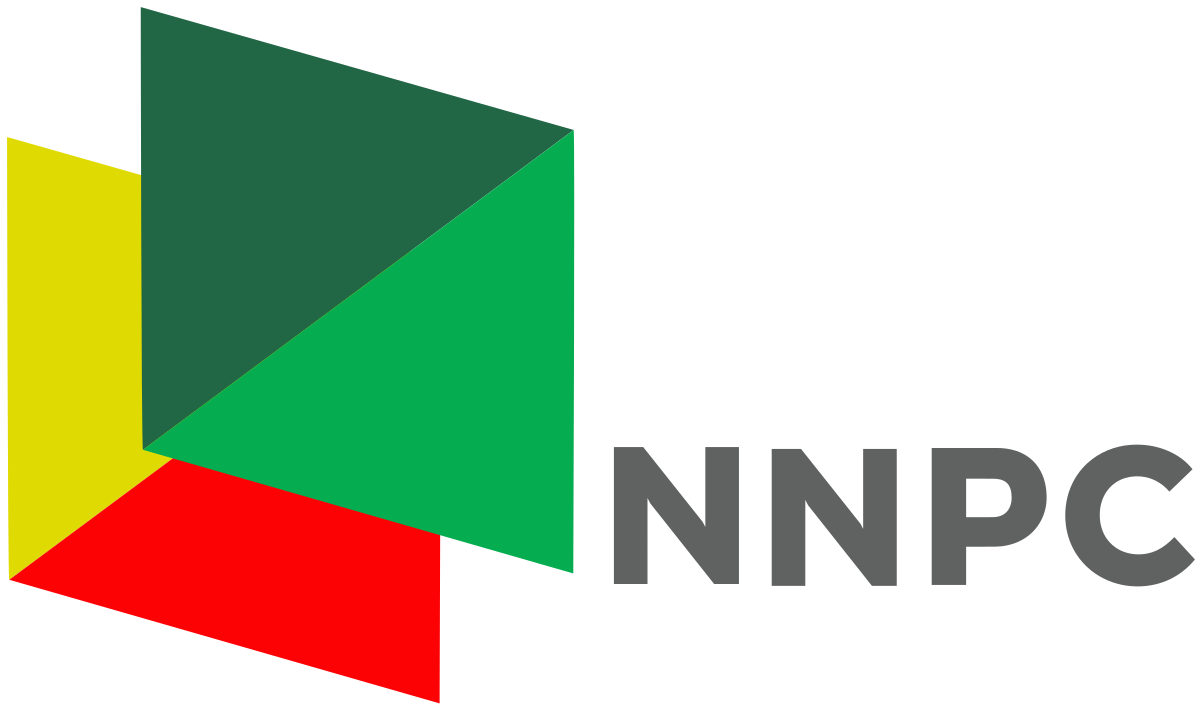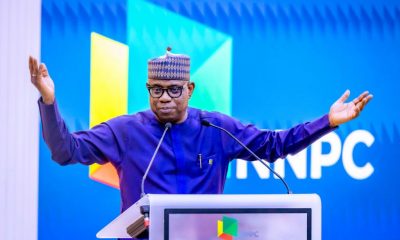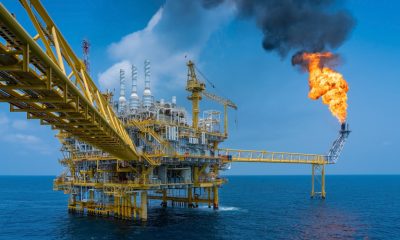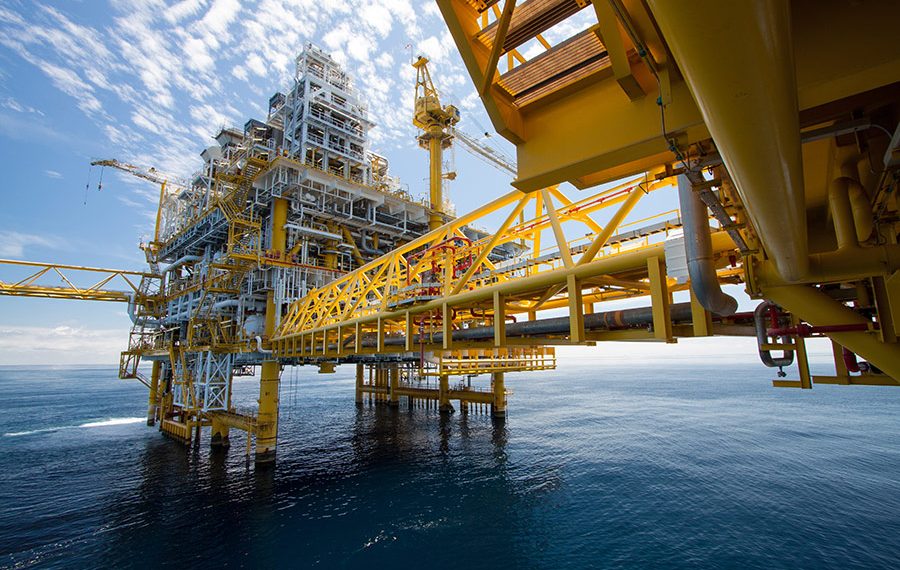Economy
NNPC Pushes For N150 Per Litre For Petrol
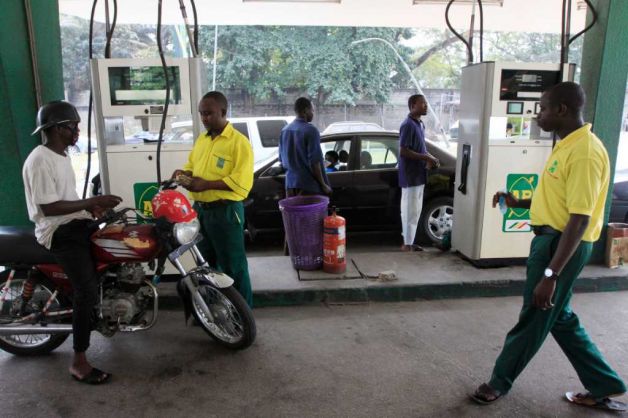

By Dipo Olowookere
There are strong indications that the Nigerian National Petroleum Corporation (NNPC) is planning to propose to the Federal Government a new pump price of N150 per litre price for Premium Motor Spirit (PMS) otherwise called petrol against the N145 per litre it presently sells.
This is as the embargo placed on price increase by President Muhammadu Buhari has worsened planned fuel price hike dilemma for the corporation.
According to the New Telegraph, landing cost of PMS as at last weekend has surged to N122.03 per litre, about N4 increase from the specification in the pricing template of the Petroleum Products Pricing Regulating Agency (PPPRA).
This, further checks showed, was responsible for the N4 per litre price hike by NNPC’s mega stations across the country, which hiked their pump price from N141 to N145 per litre.
Already, some independent marketers, caught in the debacle, who were selling at the N145 price before now, have adjusted their pumps to meet up with the market reality.
Further checks by the newspaper showed that seven foreign contractors, including Vitol, Petrocam and Northwest who participated actively in the importation of PMS, have abandoned the contracts.
“The NNPC top notch caught up in this dilemma have approached the president to explain the new market realities to him, but the president refused to hear any briefing on price hike,” a source at the presidency told the newspaper.
“The only option left on the table for NNPC is to push the prices at their stations to the highest point of the price mark.”
The source added that the Group Managing Director of NNPC, Dr Mainkanti Baru, would still meet with the president next week to brief him on the possibilities of declaring huge losses by the yearend due to the situation.
“Major marketers like ExxonMobil have exited the downstream while Total is on the verge of its exit. Marketers are running at loss; they are not making profits as envisaged and some of them have adjusted their pumps to accommodate price hike.
“In all these, the DPR is helpless because the N145 per litre price is still within the range,” an industry source added.
The Group General Manager, Crude Oil Marketing Department of the NNPC, Mr Mele Kyari, had earlier hinted that the nation’s difficult business environment may make it difficult to sustain the current pump price of petrol.
He spoke at the 10th Oil Trading and Logistics Africa Downstream Week in Lagos, where he also said it was impossible to import products at the current market price, at current fixed foreign exchange rate and recover one’s money.
Marketers that are currently selling below N145/ litre, he said, are doing so because they are not the importers of the fuel. “Because we (NNPC) have taken the heat, and you buy from us you can afford to go to the market and then put a ridiculous price,” he said.
However, Kyari ruled out the possibility of increasing the pump price by the government due to the economic hardship in the country, saying, “It is impossible for this government to announce tomorrow that petrol is about N150.”
“This government cannot sustain it,” he declared, maintaining that this “is the truth. The people will not take that number. But that is why the suppliers now are not importing. It is not about the foreign exchange.”
“We are in subsidy regime absolutely, there is no way you bring product today and take it and sell at N145 and get back your money, and make profit. That is not possible. You can see some marketers saying that fuel is N138.
“It is because they did not import. Somebody has taken the heat of the price.”
Few weeks before Kyari’s submission, former and present Group Managing Directors of the NNPC had also expressed fears that the current pump price of N145 per litre is no longer feasible.
They said the amount does not correspond with the price-determining components of the commodity and the fluctuations of the foreign exchange rate.
The NNPC had, in its statement, said: “They (the GMDs) noted that the petrol price of N145/litre is not congruent with the liberalisation policy, especially with the foreign exchange rate and other price determining components such as crude cost, Nigerian Ports Authority charges, etc. remaining uncapped.”
On the N145 per litre price, Kyari had said: “We have created a niche market for the forex. We have ring-fenced all forex from the upstream such that those forex will be available at a fixed price; a price that the CBN has agreed. I am part of the people who are involved in making sure that this forex is available.
“I am part of the committee allocating those forex, and I know and I can see some of you here; we gave you forex, but you returned it. And the reason that was given was that the forex was not enough to import.
“But the truth is that, that is not the truth. The truth is that if you go to the market today and buy products and land here, that you are required to sell it at N145 max. That is the main reason why people are not importing.
“It is not forex; we have addressed the forex issue.” The PPPRA has, however, left its template unchanged for seven months. “Based on 30 Days Moving Average Platts Posted Price for: 23rd April – 23rd May, 2016, the Landing Cost is 122.03 per litre; Total Margins are 18.37; while Total Cost 140.40; and Retail Price Band is between 135 and 145,” the agency said on its website yesterday.
“Meanwhile, the NNPC stations have increased the pump price of petrol at its retail outlets by N4 from N141 to N145 per litre. Though the new N145 price remains within the maximum price cap fixed by the Federal Government last May, this is the first time fuel at NNPC’s outlets will be sold at that price.
Hitherto, prices have been hovering between N141 and N143 per litre at NNPC and affiliate stations in major cities and even less at stations in the hinterlands.
The prices have been N141 in last few months until last week when it was raised to N145. Group General Manager, Group Public Affairs Division of NNPC, Alhaji Garba Deen Muhammad, however, said the N4 per litre price hike by NNPC was interplay of market forces. “Marketers can sell between N135 and N145 range price regime introduced in May.
“It is simply an interplay of market forces,” he said.
The N145 per price at NNPC, a management staff of the corporation said, was to minimise the losses the NNPC will record by the end of the year through its monopoly of importation. Already, the revenue losses recorded by the corporation had hit N35.4 billion in two months, as profits woes rocking the corporation worsened.
The monthly financial and operations report released on the corporation’s website last Thursday showed that the losses were recorded in July and August.
The NNPC stated that the force majeure declared by SPDC, as a result of vandalised 48-inch Forcados export line was a drag to NPDC, its subsidiary, and the overall group performance.
Additional information from https://newtelegraphonline.com/petrol-nnpc-pushes-n150-per-litre/
Economy
Flour Mills Supports 2026 Paris International Agricultural Show

By Modupe Gbadeyanka
For the second time, Flour Mills of Nigeria Plc is sponsoring the Paris International Agricultural Show (PIAS) as part of its strategies to fortify its ties with France.
The 2026 PIAS kicked off on February 21 and will end on March 1, with about 607,503 visitors, nearly 4,000 animals, and over 1,000 exhibitors in attendance last year, and this year’s programme has already shown signs of being bigger and better.
The theme for this year’s event is Generations Solution. It is to foster knowledge transfer from younger generations and structure processes through which knowledge can be harnessed to drive technological advancement within the global agricultural sector.
In his address on the inaugural day of the Nigerian Pavilion on February 23, the Managing Director for FMN Agro and Director of Strategic Engagement/Stakeholder Relations, Mr Sadiq Usman, said, “At FMN, our mission is Feeding and Enriching Lives Every Day.
“This is a mandate we have fulfilled through decades of economic shifts, rooted in a culture of deep resilience and constant innovation. We support this pavilion because FMN recognises that the next frontier of global Agribusiness lies in high-level technical exchange.
“We thank the France-Nigeria Business Council (FNBC), the organisers of the PIAS, and our fellow members of the Nigerian Pavilion – Dangote, BUA, Zenith, Access, and our partners at Creativo El Matador and Soilless Farm Lab— we are exceedingly pleased to work to showcase the true face of Nigerian commerce.”
Speaking on the invaluable nature of the relationship between Nigeria and France, and the FMN’s commitment to process and product innovation, Mr John G. Coumantaros, stated, “The France – Nigeria relationship is a valuable partnership built on a shared value agenda that fosters remarkable Intercontinental trade growth.
“Also, as an organisation with over six decades of transformational footprint in Nigeria and progressively across the African Continent, FMN has been unwaveringly committed to product and process innovation.
“Therefore, our continuous partnership with France for the success of the Paris International Agricultural Show further buttresses the thriving relationship between both countries.”
PIAS is one of the most widely attended agricultural shows, with thousands of people from across the world in attendance.
Economy
NEITI Backs Tinubu’s Executive Order 9 on Oil Revenue Remittances

By Adedapo Adesanya
Despite reservations from some quarters, the Nigeria Extractive Industries Transparency Initiative (NEITI) has praised President Bola Tinubu’s Executive Order 9, which mandates direct remittances of all government revenues from tax oil, profit oil, profit gas, and royalty oil under Production Sharing Contracts, profit sharing, and risk service contracts straight to the Federation Account.
Issued on February 13, 2026, the order aims to safeguard oil and gas revenues, curb wasteful spending, and eliminate leakages by requiring operators to pay all entitlements directly into the federation account.
NEITI executive secretary, Musa Sarkin Adar, called it “a bold step in ongoing fiscal reforms to improve financial transparency, strengthen accountability, and mobilise resources for citizens’ development,” noting that the directive aligns with Section 162 of Nigeria’s Constitution.
He noted that for 20 years, NEITI has pushed for all government revenues to flow into the Federation Account transparently, calling the move a win.
For instance, in its 2017 report titled Unremitted Funds, Economic Recovery and Oil Sector Reform, NEITI revealed that over $20 billion in due remittances had not reached the government, fueling fiscal woes and prompting high-level reforms.
Mr Adar described the order as a key milestone in Nigeria’s EITI implementation and urged amendments to align it with these reforms.
He affirmed NEITI’s role in the Petroleum Industry Act (PIA) and pledged close collaboration with stakeholders, anti-corruption bodies, and partners to sustain transparent management of Nigeria’s mineral resources.
Meanwhile, others like the Petroleum and Natural Gas Senior Staff Association of Nigeria (PENGASSAN) have kicked against the order, saying it poses a serious threat to the stability of the oil and gas industry, calling it a “direct attack” on the PIA.
Speaking at the union’s National Executive Council (NEC) meeting in Abuja on Tuesday, PENGASSAN President, Mr Festus Osifo, said provisions of the order, particularly the directive to remit 30 per cent of profit oil from Production Sharing Contracts (PSCs) directly to the Federation Account, could destabilise operations at the Nigerian National Petroleum Company (NNPC) Limited.
Mr Osifo firmly dispelled rumours of imminent protests by the union, despite widespread claims that the controversial executive order threatens the livelihoods of 10,000 senior staff workers at NNPC.
He noted, however, that the union had begun engagements with government officials, including the Presidential Implementation Committee, and expressed optimism that common ground would be reached.
Mr Osifo, who also serves as President of the Trade Union Congress (TUC), expressed concerns that diverting the 30 per cent profit oil allocation to the Federation Account Allocation Committee (FAAC), without clearly defining how the statutory management fee would be refunded to NNPC, could affect the salaries of hundreds of PENGASSAN members.
Economy
Dangote Cement Deepens Dominance, Export Activities With $1bn Sinoma Deal

By Aduragbemi Omiyale
To strengthen its domestic market dominance, drive its export activities, optimise existing operational assets and enhance production efficiency and capacity expansion, Dangote Cement Plc has sealed $1 billion strategic agreements with Sinoma International Engineering for cement projects across Africa.
The president of Dangote Industries Limited, the parent firm of Dangote Cement, Mr Aliko Dangote, disclosed that the deal reinforces the company’s long-term growth strategy and aligns with the broader aspirations of the Dangote Group’s Vision 2030.
According to him, Sinoma will construct 12 new projects and expand others for the cement organisation across Africa, helping to achieve 80 million tonnes per annum (MTPA) production capacity by 2030, while supporting the group’s overarching target of generating $100 billion in revenue within the same period.
Under the Strategic Framework Agreement, Sinoma will collaborate with Dangote Cement on the delivery of new plants, brownfield expansions, and modernisation initiatives aimed at strengthening operational performance across key markets.
The new projects include a new integrated line in Northern Nigeria with a satellite grinding unit, a new line in Ethiopia and other projects in Zambia/Zimbabwe, Tanzania, Sierra Leone and Cameroon. In Nigeria, Sinoma will also handle different projects in Itori, Apapa, Lekki, Port Harcourt and Onne.
The projects signal Dangote Cement’s sustained commitment to consolidating its leadership position within the African cement industry, while enhancing its competitiveness on the global stage.
Chairman of the Dangote Cement board, Mr Emmanuel Ikazoboh, during the agreement signing event in Lagos, explained that the new projects would enable the company to play a critical role in actualising Dangote Group’s Vision 2030.
The new projects, when completed, will increase Dangote Cement’s capacity and dominant position in Africa’s cement industry.
On his part, the Managing Director of Dangote Cement, Mr Arvind Pathak, said the agreement reflects the company’s determination to grow its investments across African markets to close supply gaps and support the continent’s infrastructural ambitions.
According to him, Dangote Cement is committed to making Africa fully self‑sufficient in cement production, creating more value and linkages, leading to increased economic activities and a reduction in unemployment.
-

 Feature/OPED6 years ago
Feature/OPED6 years agoDavos was Different this year
-
Travel/Tourism10 years ago
Lagos Seals Western Lodge Hotel In Ikorodu
-

 Showbiz3 years ago
Showbiz3 years agoEstranged Lover Releases Videos of Empress Njamah Bathing
-

 Banking8 years ago
Banking8 years agoSort Codes of GTBank Branches in Nigeria
-

 Economy3 years ago
Economy3 years agoSubsidy Removal: CNG at N130 Per Litre Cheaper Than Petrol—IPMAN
-

 Banking3 years ago
Banking3 years agoSort Codes of UBA Branches in Nigeria
-

 Banking3 years ago
Banking3 years agoFirst Bank Announces Planned Downtime
-

 Sports3 years ago
Sports3 years agoHighest Paid Nigerian Footballer – How Much Do Nigerian Footballers Earn


